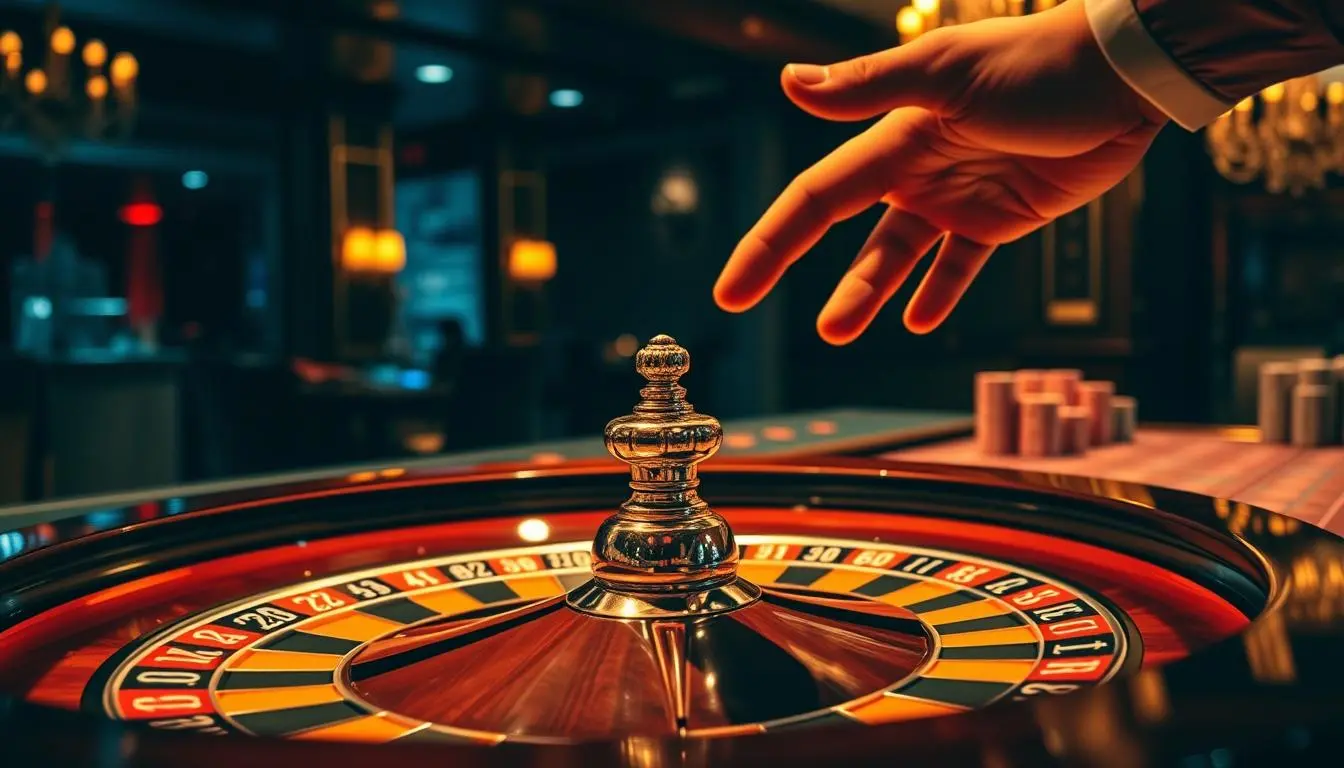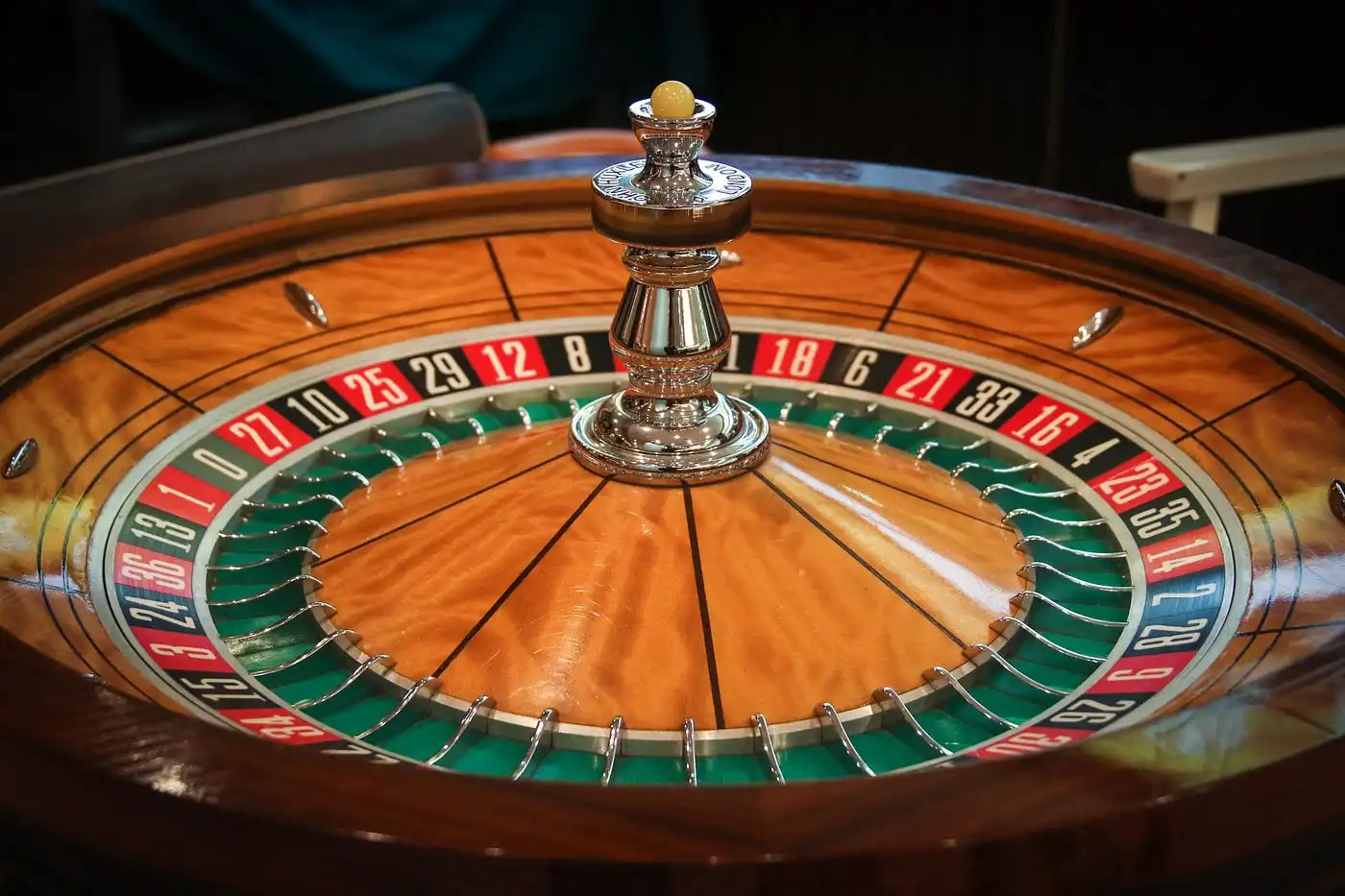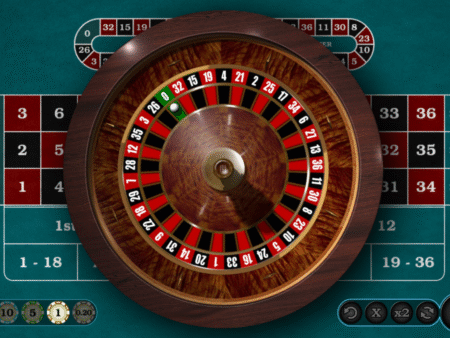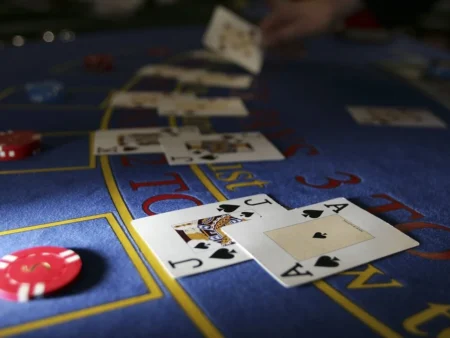Roulette is one of the most famous casino games in the world, known for its spinning wheel, bouncing ball, and the thrill of guessing where it will land. Its rules are simple, but behind this simplicity lies a fascinating mix of probability, chance, and psychology. Over the years, players have tried all sorts of roulette strategies—also called roulette systems—hoping to increase their chances of winning. Some promise steady profits, others claim to beat the odds, and many have become popular online tips for new and experienced players alike. But how effective are these strategies really? That’s what we’re here to explore.
Roulette strategies vary widely. Some are very simple, like flat betting, where you always bet the same amount. Others, like Martingale, Fibonacci, Labouchère, or D’Alembert, follow specific rules that change your bet depending on previous results. For example, Martingale suggests doubling your bet after a loss to recover what you lost and make a small profit. Fibonacci uses a number sequence to manage your bets in a structured way. Online roulette tips often highlight these systems as ways to make gameplay more interesting and potentially profitable—but it’s important to understand what they can and cannot do.
Real Analysis of Popular Roulette Strategies and Their Effectiveness
Here’s the reality: no system can beat the house edge. Roulette is designed so that each spin is independent, whether you’re playing on a European wheel with one zero or an American wheel with two. Previous spins don’t affect the next spin. This is why believing in “hot numbers,” “cold numbers,” or streaks is more myth than fact. Thinking otherwise can lead to riskier bets or unrealistic expectations.
Learning about roulette strategies is still useful. They teach players how to manage their bankroll, understand risk, and recognize their own biases. Using a system can make the game more fun and give structure to your bets—but it won’t guarantee you’ll win. On online roulette platforms, where games are fast and accessible, knowing the limits of these strategies is even more important.
Key Principles of Roulette Strategies
Some key points to keep in mind:
- Roulette strategies focus on betting patterns, not changing the actual odds.
- Every spin is independent—past results don’t affect the future.
- Systems like Martingale or Fibonacci can help manage bets, but losing streaks are always risky.
- Believing in patterns or “luck” can lead to mistakes.
- Online roulette tips should focus on responsible gaming and understanding probabilities.
By understanding these basics, you can separate myths from reality and approach roulette with a clear mind, making smarter decisions instead of relying on luck alone.
What Are the Most Popular Roulette Strategies?
When people first dive into roulette betting systems, they usually discover the same well-known methods that players have been discussing for years. These strategies are popular not because they magically increase your odds, but because they give players a sense of structure and control in a game built entirely on chance. For many newcomers, having a clear plan simply makes the experience more enjoyable and less overwhelming. Before choosing any system, it’s important to understand how it really works, what it can offer, and where its limitations lie. This way, players can approach the game with realistic expectations rather than illusions of guaranteed profits.
One of the most famous approaches is Martingale roulette, known for its straightforward rule: if you lose, you double your next bet. The idea is that sooner or later you’ll win, and that win will cover all the previous losses plus give you a small gain. While this sounds appealing, it comes with significant risks. Losing streaks happen more often than people think, and doubling bets quickly leads to large numbers. In real play, this can drain a bankroll surprisingly fast or push you into table limits long before the “big recovery win” arrives. Still, many players enjoy Martingale because it feels logical and easy to follow.
Alternative Roulette Systems and How They Work
Another widely used system is Fibonacci roulette, which relies on the famous Fibonacci sequence (1, 1, 2, 3, 5, 8, 13, and so on). Instead of doubling your bets like in Martingale, you increase them step-by-step according to the sequence after each loss. When you win, you move two positions back. This creates a slower and gentler progression, which some players find more comfortable. Even though Fibonacci feels more controlled, it still involves chasing losses—and like every other system, it cannot remove the house edge. But it does offer a smoother and more methodical experience, which many players appreciate.
In addition to these two, the roulette world is full of other strategies, each with its own personality. Systems like D’Alembert, Labouchère, and the Reverse Martingale (also known as Paroli) offer different approaches depending on whether a player prefers steady bets, recovery-focused progressions, or riding winning streaks. None of them change the game’s mathematics, but they do influence how players manage their bankrolls and how emotionally comfortable they feel during the ups and downs of roulette.
Overview of the Most Common Roulette Betting Systems
Here is a simple breakdown of the most commonly used roulette betting systems:
- Martingale: double your bet after a loss to quickly recover previous losses.
- Fibonacci: increase your bet slowly using the Fibonacci sequence for a more gradual progression.
- D’Alembert: adjust your bets by small increments—up after losses and down after wins.
- Labouchère: use a written number sequence and cross out numbers when you win.
- Paroli (Reverse Martingale): increase your bet during winning streaks instead of losing streaks.
Understanding these systems doesn’t mean you’ll beat roulette, but it does help you choose a playing style that fits your comfort level, risk tolerance, and the kind of experience you want from the game. Roulette remains a game of chance—but knowing how these strategies work can make the journey far more enjoyable and confident.
Does the Martingale System Work in Online Roulette?
The Martingale system is probably the first strategy most people hear about when they start exploring roulette. It’s simple, easy to understand, and feels logical — which is exactly why so many players try it in martingale online roulette. The idea is straightforward: every time you lose, you double your next bet. Then, when you finally win, that win should be big enough to cover everything you lost before. It sounds comforting, almost reassuring, because it gives the impression that a win is always “just around the corner.” But roulette doesn’t work that way. Each spin is completely independent, so even long losing streaks can happen more often than players expect. And when they do, this strategy can become much more intense than anticipated.
How the Martingale Progression Quickly Escalates in Practice
To make the martingale strategy explained clearly, imagine starting with a small $1 bet. You lose and double to $2. Lose again — double to $4. Then $8, $16, $32, and so on. The growth is incredibly fast. A streak of only eight losses (something that happens more often than you’d think) forces you into a bet size many players simply cannot afford. And even if you can afford it, the casino’s table limit might stop you from placing the required next bet, leaving you with a large unrecovered loss. On paper, Martingale looks like a clean, mathematical loop. In real online roulette, where spins are quick and losing streaks feel like they appear out of nowhere, things can escalate at a surprising speed.
Why the Martingale System Feels Appealing — and Why It’s Risky
For some players, Martingale still holds appeal. It creates structure, removes guesswork, and provides a feeling of control in a game that is purely based on chance. Many also enjoy the adrenaline — that moment when one win wipes out a chain of losses feels incredibly satisfying. But despite these emotional highs, it’s important to look at the system realistically. In martingale online roulette, the risk is not the occasional small loss. The real danger is the rare but devastating streak that pushes bets to uncomfortable levels. This is the point where players begin to understand that a strategy can feel good emotionally yet still be risky mathematically.
Here are some of the main martingale pros cons to keep in mind:
- Pros: easy to learn, gives structure to betting, and can quickly recover losses after a win.
- Cons: losing streaks can grow bets extremely fast, requires a large bankroll, often hits table limits, and cannot overcome the house edge.
So, does the Martingale system really work? It depends on what you expect from it. If your goal is to add excitement and a sense of structure to your game, the system can absolutely deliver that. But if you’re hoping for a long-term winning method, Martingale isn’t it. It can be enjoyable when used carefully, but it should never be mistaken for a guaranteed way to beat roulette. Responsible use — and a clear understanding of the risks — is the only way to approach this strategy safely.
Can You Beat Roulette Long Term?
Many players wonder if beating roulette is possible over the long term, and it’s a question that often sparks lively debates. The truth is that roulette is designed with a built-in house edge, which mathematically favors the casino in every spin. This means that no matter how clever your strategy or how disciplined your betting system, the odds are always slightly against you. That said, understanding probability, managing your bankroll, and applying a well-thought-out roulette long term strategy can help players improve their experience, minimize losses, and occasionally catch profitable streaks. Success in the long run is less about guaranteed wins and more about playing wisely and within your limits.
Choosing the Right Roulette Wheel for Better Odds
When considering how to approach roulette for the long term, experienced players focus on several key factors. Choosing the right type of roulette wheel is essential. European and French wheels, with only a single zero, offer lower house edges compared to the American wheel, which has both a zero and double zero. Using features like the French rule La Partage or En Prison can further reduce losses, giving players better roulette winning chances when betting on even-money options. In contrast, American roulette significantly decreases winning probability, making it less favorable for anyone trying to manage risk over many sessions.
Another important element of a long-term approach is bankroll management. Players who adopt a roulette long term strategy carefully define how much they are willing to risk per session, set limits for individual bets, and stick to those limits no matter what happens. Popular betting systems such as Martingale, D’Alembert, or Fibonacci can provide structure and guide wagering patterns, but they do not alter the underlying probabilities of the game. The key is using these systems as tools to organize play and protect your bankroll rather than expecting them to beat the house edge.
Key Principles for a Long-Term Roulette Strategy
Here is a simple summary of key principles for a sustainable long-term roulette strategy:
- Focus on games with the lowest house edge, such as European or French roulette.
- Manage your bankroll carefully, setting clear limits for session stakes and individual bets.
- Use betting systems like Martingale, Fibonacci, or D’Alembert as tools for structure, not guaranteed wins.
- Accept that each spin is independent, and no previous outcome influences future results.
- Play responsibly and avoid chasing losses, keeping the experience enjoyable rather than stressful.
Ultimately, long-term success in roulette is about discipline, knowledge, and realistic expectations. You will not find a strategy that guarantees continuous wins, but you can make smarter decisions, reduce losses, and enjoy the game in a controlled way. By combining careful bankroll management with an understanding of probabilities and house edges, players can maximize fun and maintain confidence while navigating the unpredictable world of roulette.
Are Online Roulette Wheels Fair or Rigged?
If you’ve ever played online roulette, you’ve probably asked yourself: are these wheels really fair, or is the game somehow rigged? It’s a natural question — after all, you can’t see the ball spin in front of you like in a land-based casino. The good news is that most reputable online casinos use advanced technology to make sure every spin is completely random. The key is something called a casino roulette RNG (Random Number Generator). This is a software algorithm designed to mimic the randomness of a real roulette wheel, so no one can predict or influence the results. On top of that, trusted casinos have their RNGs tested by independent companies to ensure fairness.
Why Understanding Fair Roulette Wheels Builds Player Confidence
Understanding how fair roulette wheels work can help you feel more confident while playing. Online roulette is built to follow the same odds as a real wheel — European, American, or French. Each spin is independent, meaning previous results don’t affect the next one. While this doesn’t guarantee wins, it does mean you’re playing a fair game, and the casino isn’t cheating you. That transparency is why choosing a regulated online casino is so important.
Of course, not every website is trustworthy. Some unlicensed platforms may attempt to manipulate outcomes, giving players an unfair disadvantage. That’s why checking licenses and certifications is crucial. Even with fair roulette, the house still has a small edge — there’s no magic trick that will guarantee a win. The difference is that a certified RNG gives everyone a fair shot according to the rules of the game.
Tips for Ensuring You Play on Fair Online Roulette Wheels
Here are a few tips to make sure you’re playing on fair roulette wheels:
- Choose a casino licensed by a recognized regulatory authority.
- Look for independent audits or certificates for their RNG software.
- Check reviews and player feedback to find reputable platforms.
- Avoid unlicensed sites or casinos promising guaranteed wins.
- Remember that RNG games are designed to replicate real roulette, giving every spin a fair and random outcome.
In short, online roulette can absolutely be fair. As long as you stick to licensed and regulated casinos, the RNG ensures that every spin is random and unbiased. While luck and strategy play a role in your experience, knowing that the game is fair allows you to focus on enjoying the thrill without worrying about rigged results.
European vs American Roulette: Understanding the Differences
When it comes to roulette, one of the first choices a player faces is whether to play European or American roulette. At first glance, both wheels look similar: red and black numbers, a green zero, and a spinning ball that keeps players on the edge of their seats. But beneath the surface, the differences are significant, and understanding them can have a real impact on your gameplay. Choosing the right version isn’t just a matter of preference — it directly affects your european roulette odds, the roulette house edge, and ultimately your long-term experience.
Why the Zero Difference Makes European Roulette Smarter
The main difference between the two types of roulette is simple: European roulette has a single zero, while American roulette has both a single zero and a double zero. This small variation has a big effect on the math. In European roulette, the house edge is around 2.7%, which means that, on average, the casino expects to keep $2.70 for every $100 wagered. In American roulette, the extra double zero raises the house edge to 5.26%, almost double that of the European wheel. This difference alone explains why seasoned players often prefer European roulette, especially for longer sessions or when aiming to minimize losses over time.
Beyond the numbers, there are differences in rules that can affect strategy. European and French roulette wheels sometimes offer special rules like La Partage or En Prison, which further reduce the house edge on even-money bets. American roulette lacks these options, making it less favorable for players trying to manage risk. In short, if your goal is a safer experience with slightly better european roulette odds, the European wheel is generally the smarter choice.
Key Differences Between European and American Roulette
Here are some key points that highlight the differences between American and European roulette:
- House Edge: European roulette has a 2.7% edge, while American roulette is 5.26%.
- Zero Slots: European roulette has 1 zero; American roulette has 2 (0 and 00).
- Special Rules: French/European games may include La Partage or En Prison, reducing risk on even-money bets.
- Strategy Impact: Lower house edge means betting systems like Martingale or Fibonacci face less pressure and smaller potential losses.
- Long-Term Odds: The math favors European roulette for players aiming to sustain longer play sessions.
Understanding the difference between American roulette vs European is more than just trivia — it’s a practical guide to making smarter choices at the table. While luck is always the main factor, knowing the math behind the wheel gives you better control over your bankroll and improves your chances of enjoying longer, more successful sessions. Whether you’re a beginner or a seasoned player, choosing the right wheel, understanding the roulette house edge, and applying that knowledge to your bets is a small step that can make a big difference in your overall roulette experience.
Both live and RNG (random number generator) roulette have their advantages, but neither guarantees consistent wins. Live roulette offers a more authentic casino experience with real dealers and real-time interaction, which can enhance engagement and trust. RNG roulette, on the other hand, is faster, available 24/7, and uses software to simulate spins with fair outcomes. Choosing between them depends on your preference for immersion versus speed and convenience. Both types of roulette are fair when offered by licensed casinos. Live roulette relies on physical equipment and human dealers, while RNG roulette uses audited software to ensure random and unbiased results. Regulatory oversight and third-party testing ensure that both formats provide transparent outcomes. Players can trust either option if the casino is reputable and properly licensed. The safest bets in roulette are even-money options, such as red or black, odd or even, or high or low. These bets offer nearly a 50% chance of winning on each spin, minimizing risk compared to single-number bets. While the payouts are smaller, they provide steadier returns and help preserve your bankroll over time. This approach is ideal for players seeking lower-risk strategies without relying on luck for big jackpots. No bet can guarantee consistent profits in roulette because the house always maintains an edge. Safe bets reduce risk but do not eliminate the inherent randomness of the game. Players can use them to extend playtime and manage their bankroll effectively, but wins remain subject to chance. Understanding this balance is essential to avoid unrealistic expectations. Consistently winning in online roulette is extremely unlikely because each spin is independent and the house edge remains constant. While some players report streaks or short-term success, long-term outcomes always favor the casino. Strategy and bankroll management can improve your experience, but no method can overcome the fundamental odds. Responsible gambling practices are crucial for enjoyment without chasing impossible wins. Most roulette strategies, such as Martingale or Fibonacci, focus on managing bets rather than changing the odds. They may offer short-term gains or help control losses, but they cannot alter the house edge or guarantee wins. Understanding that strategies are tools for risk management, rather than foolproof methods, helps players approach roulette more realistically. Focusing on specific numbers or patterns does not increase your chances of winning in roulette, as every spin is independent. While it can make the game more engaging and entertaining, it does not influence the probability of outcomes. Smart players concentrate on managing their bets and bankroll rather than chasing patterns. This mindset prevents frustration and encourages more enjoyable gameplay. Beginners should prioritize understanding the rules, practicing responsible bankroll management, and choosing bets with lower risk. Experimenting with both live and RNG roulette can help them find a preferred style of play. They should also approach strategies as ways to control losses rather than tools for guaranteed wins. This approach ensures that the game remains fun, educational, and safe.FAQ: Roulette strategies myths vs reality
Is it better to play live roulette or RNG roulette?
Are live roulette games more fair than RNG roulette?
What is the safest bet in roulette?
Do safe bets guarantee profits in roulette?
Can you win consistently in online roulette?
Do roulette strategies really work?
Is it better to focus on certain numbers or patterns?
How should beginners approach roulette for the best experience?








